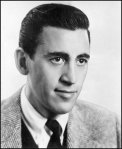I recently was interviewed by Katharine Hansen’s excellent blog, A  Storied Career, on the transformative power of our stories, making a living through the language arts, and how Transformative Language Arts has helped people create careers doing work they love and helping their communities find and share stories. Check the interview out, and read other interviews, articles and amazing insights on this site, which explores the intersection of various aspects of storytelling, including writing, blogging, and speaking stories for individuals, organizations, communities, careers and callings.
Storied Career, on the transformative power of our stories, making a living through the language arts, and how Transformative Language Arts has helped people create careers doing work they love and helping their communities find and share stories. Check the interview out, and read other interviews, articles and amazing insights on this site, which explores the intersection of various aspects of storytelling, including writing, blogging, and speaking stories for individuals, organizations, communities, careers and callings.
Kathy Hansen’s Blog to explore traditional and postmodern forms/uses of storytelling.

